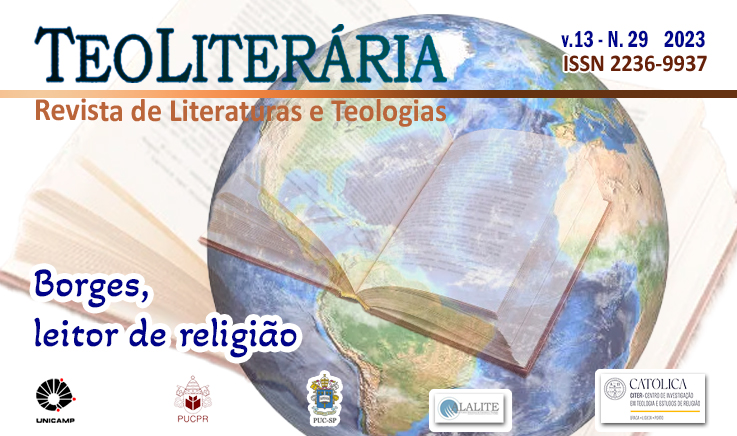“Chocolat”, the film
Spirituality, Desire, and Ethics
DOI:
https://doi.org/10.23925/2236-9937.2023v29p111-130Keywords:
Spirituality, Desire, Ethics, “Chocolat” (the Film)Abstract
In this article we reflect on the contribution that the movie “Chocolat” may give to discussions on ethics with a focus on the topic of the desire. Launched in 2000, directed by Lasse Hallström, and with adpated screenplay by Joanne Harris. The movie may be comprehended as a narrative about desire in a dialectical movement between the tradition that fossilizes the present and the new, which is represented by a woman that arrives at a village and impacts its people. Accompanied only by her daughter, she promotes a Revolution in the desire (that transforms the body) of the villagers through her cooking. The movie questions a Cartesian based anthropological understanding that may raise impasses subject to ethical debates. So, the “Chocolat” aids the critique of this dualistic anthropology by discussing the dynamics of desire and unveiling its deeper dimension. After arguing on such anthropological foundation of ethics, we present a critical reflection on the desire drawing from Christian spirituality. Finally, based on Rubem Alves’ Theopoetics, we highlight some elements of the movie that display an anthropological understanding that set desire as central element that gives motion to human life and must not be neglected, but integrated to the experience of a spirituality that may inspire an ethics guided to the defense of life. Methodologically the article runs an exploratory documental and bibliographical analysis, assuming that cinema is an appropriate language to discuss religion and religious revelation.
References
ALVES, Rubem. O suspiro dos oprimidos. São Paulo: Paulinas, 1984.
ALVES, Rubem. Variações sobre a vida e a morte. São Paulo: Paulinas, 1982.
ALVES, Rubem. A gestação do futuro. Campinas: Papirus, 1986.
BOFF, Leonardo. Constantes Antropológicas e Revelação. REB, v. 32, n. 125, p. 36-37, mar. 1972.
CALVANI, Carlos Eduardo. Teologia e MPB. São Paulo: Loyola, 1998.
CHAUI, Marilena. Laços do desejo. In: NOVAES, Adauto (Org.), O Desejo. São Paulo, Cia das Letras, 1995, p.19-66.
CHOCOLATE . Lasse Hallström. São Paulo: Folha da Manhã, 2005. (1 DVD)
FOUCAULT, Michel. História da Sexualidade, I: a vontade de saber. Rio de Janeiro: Graal, 1980.
GUSDORF, Georges. Tratado de Metafísica. São Paulo: Companhia Editora Nacional, 1960.
HAKER, Hille. O corpo perfeito: as utopias da biomedicina. Revista Concilium, n. 295, p. 8-18, 2002/2.
HARRIS, Joanne. Chocolat. Rio de Janeiro: Rocco, 2007.
LE BRETON, David. Adeus ao corpo: antropologia e sociedade. Campinas: Papirus, 2003.
RUIZ, Esteban Ramírez. El camino de la interioridad en la búsqueda de Dios. In: LA BÚSQUEDA de Dios. La dimensión contemplativa de la espiritualidad agustiniana. Curso Internacional de Espiritualidad. Roma: Publicaciones Agustinianas, 1981.
SÉRVULO DA CUNHA, Mariana Palozzi. Movimento da Alma, invenção por Agostinho do conceito de vontade. Porto Alegre: EDIPUCRS, 2001.
SANTO AGOSTINHO. A Trindade. São Paulo: Paulus, 1994.
Published
How to Cite
Issue
Section
License
Copyright (c) 2023 Teoliteraria - Journal of Literatures and Theologies (On Line) ISSN 2236-9937

This work is licensed under a Creative Commons Attribution 4.0 International License.
TeoLiteraria – Journal of Literatures and Theologies owns the copyright of all published material. The whole reproduction of the articles of this Journal in other publications or for any other purpose, by any means, requires a written permission of the editor of this journal. Partial reproductions of articles (abstracts, more than 500 words text, tables, figures and other illustrations) must have a permission written by the publisher and the authors.

